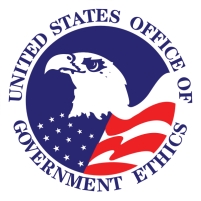
Fed retirees: Nervous outside the civil service
What do federal retirees have in common with Marie Antoinette? Senior Correspondent Mike Causey says the answer is not a piece of cake.
Don’t miss Mike Causey’s latest column. Sign up for the daily Federal Report email.
Pound-for-pound, the average federal retiree is probably better off financially than the average private sector retiree. Government retirement benefits are generally better for rank-and-file retirees than those who put in a lifetime working for a private employer. Especially a small employer, or one of the big-box giants who didn’t and don’t make a profit by handing out generous pensions. Many private sector firms don’t even have pension packages. For their employees, retirement benefits are based on whatever they get from Social Security, plus any earning they rack up from their 401k plan contributions. Many private companies that offer 401k options to workers don’t match employee contributions. The majority of feds who are under the FERS retirement program get a match of up to 5 percent from their agencies.
But while the retirement plans for federal and postal workers (CSRS, FERS and CSRS Offset) are good, many retirees, especially those with short-service at low salaries, have a tough time making ends meet. That’s especially true for those with chronic medical problems. Although the federal health program (FEHBP) is excellent, and the government pays roughly 72 percent of the total premium, many retirees still have big-time, out-of-pocket and constant costs. While many of the remaining private sector retirement plans are noncontributory, federal and postal workers do contribute to their retirement plans.
The good news for retired federal and postal people is that benefits are fully linked to inflation under the CSRS and Offset Programs. They get cost-of-living adjustments each January to help them catch up with increases based on inflation during the previous year. FERS retirees don’t get COLAs until they reach age 62. Then, if inflation exceeds a certain level, they get adjustments (called diet COLAs) that are 1 percentage point less than the actual increase in inflation. It’s a complex system, using one of the Consumer Price Indexes managed by the Labor Department’s Bureau of Labor Statistics. BLS employees, and Labor Department workers like other feds, are naturally under the same COLA system. So it is unlikely — as some retirees suspect — they would low-ball inflation to suit the administration in power.
The bad news about linkage with inflation is when living costs or flat, or drop — as in times of deflation — the retirees (including people under Social Security — get nothing. Benefits don’t go down, if living costs drop, but they also don’t go up. Retirees didn’t get a COLA this year and indications are that they might not get a COLA in January 2017. That’s despite the fact that items important to older retirees, including health insurance premiums, continue to go up. Even in a year with little or no inflation.
Low oil prices, which many cheered when they starting dropping, are usually cited as the reason federal and Social Security retirees didn’t get a 2016 COLA and might not get one next year.
Monday’s column dealt with the likelihood that federal workers will get a raise in January and federal retirees might not. That prompted these responses, one from a retiree and another who is leaving government service soon.
”Mike I truly realize how well off I have it. But changes need to be made to this way of calculating COLAs. You can’t have your health insurance go up $20.00 a month, you can’t have your Medicare Part B continue to go up without some kind of bump to offset them. You can’t allow gasoline prices to dictate the majority of formula to determine the CPI. It’s totally absurd there are way too many things that have to be entered into the equation. But like I said before, I appreciate your help and you are a man of your word for writing the article” B.L.
And this, from a short-timer with a sense of humor. And history:
”Congress’ attitude is, in the words of Marie Antoinette, ‘Let them drink gas!’
“I’ll be retiring next Jan. 1, so I guess I’ll drinking that gas a year from then. Maybe it’ll give me some new energy.” Larry Brady
Ms. Antoinette, you may recall, held a high position in the French government until she was forced into early retirement. COLAs, or lack of same, were not a major issue for her!
Nearly Useless Factoid
The name Antoinette is the feminine form of Antoine, which means “beyond praise” or “praiseworthy”.
Source: Wikipedia
Copyright © 2025 Federal News Network. All rights reserved. This website is not intended for users located within the European Economic Area.
Mike Causey is senior correspondent for Federal News Network and writes his daily Federal Report column on federal employees’ pay, benefits and retirement.
Follow @mcauseyWFED





